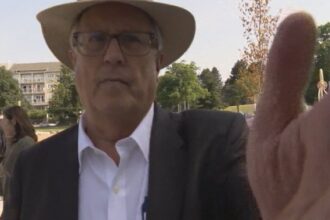In a troubling breach of professional standards, a British Columbia kindergarten teacher has received formal disciplinary action after repeatedly vaping in school bathrooms during class hours, according to regulatory documents released Tuesday.
The BC Teacher Regulation Branch revealed that Melanie Henderson, a Vancouver-area educator with eight years of classroom experience, was caught using electronic cigarettes in elementary school facilities on multiple occasions between September 2024 and February 2025, despite clear district policies prohibiting such behavior.
“The teacher’s conduct demonstrated a concerning pattern of disregard for school safety protocols and professional expectations,” states the consent agreement published on the Branch’s regulatory website.
According to the investigation, Henderson initially denied the allegations when confronted by school administration in November 2024, claiming she had only used her vaping device in designated outdoor areas during break periods. However, surveillance footage and eyewitness accounts from staff members subsequently confirmed her unauthorized bathroom vaping sessions during instructional time.
The discipline report further notes that Henderson left her kindergarten class unsupervised at least seven times to satisfy her nicotine cravings, with absences ranging from three to eight minutes. On one documented occasion, a teaching assistant discovered the classroom unattended while students were using scissors during an art project.
“Teachers hold positions of significant trust and responsibility,” said Education Minister Daniel Chen in a statement to CO24 News. “This behavior not only violated school policies but potentially exposed young children to harmful substances and safety risks.”
The Vancouver School District maintains a strict prohibition on vaping and smoking on school premises, in alignment with provincial regulations designed to protect students from secondhand exposure to nicotine products. The district’s policy explicitly extends to all indoor facilities, including staff washrooms.
Henderson has been issued a formal reprimand and will be required to complete a professional ethics course before the end of the current academic year. The teacher has also agreed to participate in nicotine cessation counseling as part of her remediation plan.
Child health advocates have expressed concern about the incident, noting the particularly vulnerable age of the students involved.
“Kindergarteners are at a highly impressionable stage,” explained Dr. Sarah Montrose, pediatric health specialist at BC Children’s Hospital. “When educators model inappropriate behaviors like vaping, it can normalize substance use for these young minds, even if they’re not directly witnessing it.”
This case emerges amid growing provincial concern about youth vaping rates in Canada, with recent Health Canada data showing that nearly 15% of BC students in grades 7-12 report regular e-cigarette use.
Education policy experts suggest this disciplinary action reflects the heightened scrutiny of professional conduct in educational settings.
“Teaching certificates come with clear ethical obligations that extend beyond academic instruction,” said Professor Robert Jameson from the University of British Columbia’s Faculty of Education. “School districts are increasingly vigilant about behaviors that compromise student safety or contradict the health messages embedded in curriculum.”
As schools continue navigating the challenges of substance use prevention, this case raises important questions about the personal habits of educators and their alignment with institutional values. How effectively are our educational institutions balancing staff privacy with the imperative to model healthy behaviors for the next generation?











